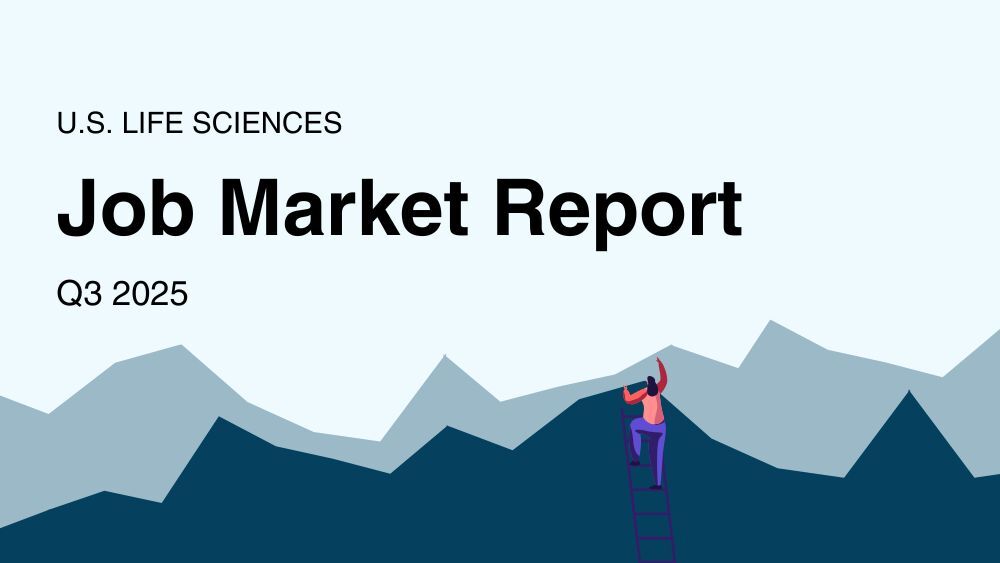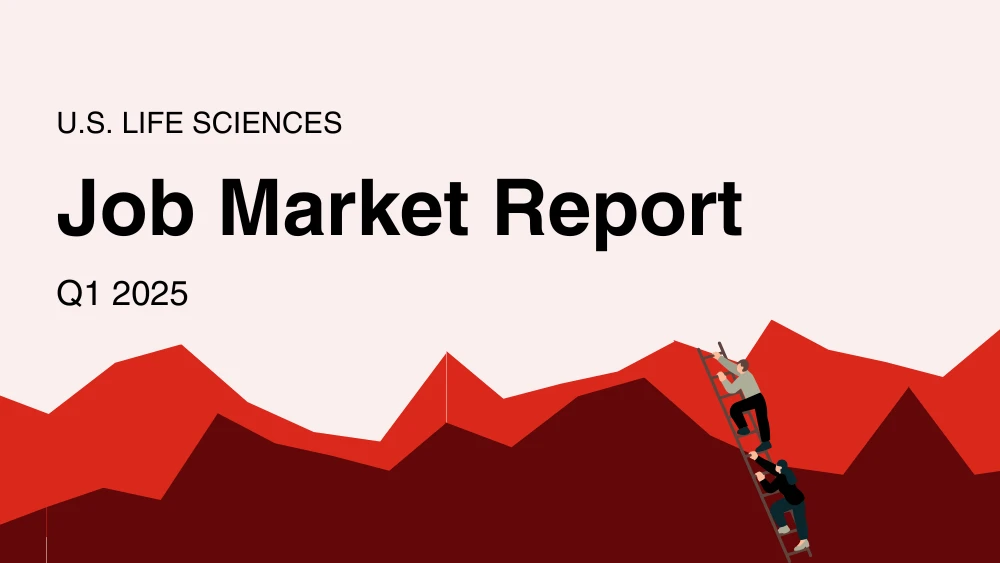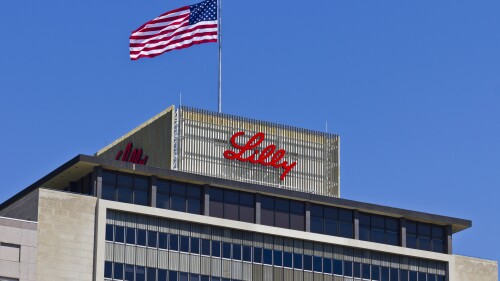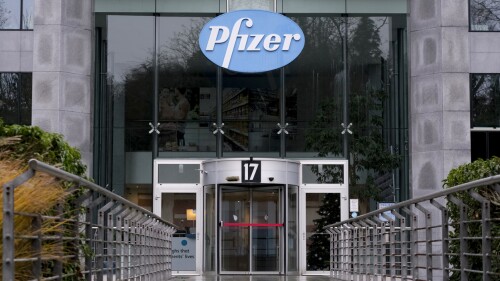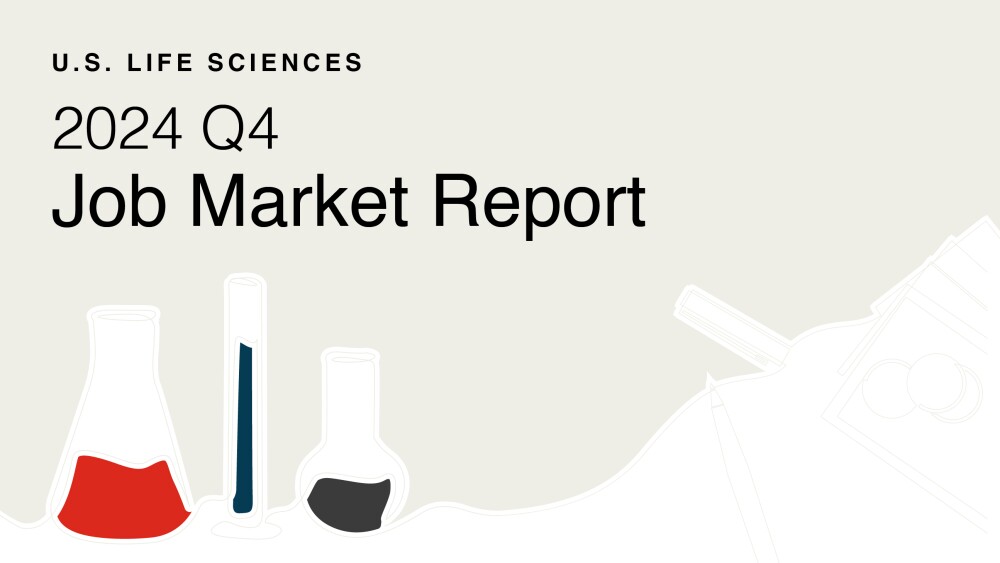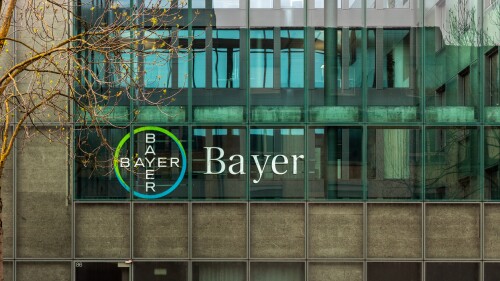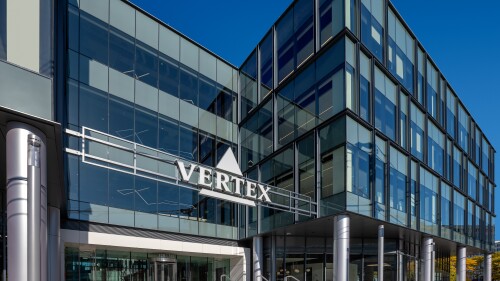In this episode of Denatured presented by AnaptysBio, Jennifer Smith-Parker speaks to Dr. Joe Murray, Mayo Clinic; Marilyn Geller, the Celiac Disease Foundation; and Dr. Paul Lizzul, AnaptysBio, about the challenges and opportunities facing celiac disease treatment.
Backed by Italy-based Fondazione Telethon ETS, Waskyra, for Wiskott-Aldrich syndrome, is the first gene therapy from a non-profit sponsor to win FDA approval.
The FDA has informed Merck, Sanofi and AstraZeneca of the safety investigation into their RSV antibodies, though it remains unclear what regulatory action, if any, will be taken.
The Commissioner’s National Priority Voucher program was launched in June to shorten review times for companies that align with various national priorities, such as improving domestic drug production and supply.
Pfizer deals again in obesity space as Wave and Structure drop splashy weight loss results; what CDER Director Richard Pazdur’s sudden retirement means for biopharma; neuro diseases take center stage at CTAD; and more.
Pfizer apparently had more in the tank after the high-profile battle to acquire Metsera earlier this fall. The company has licensed a new GLP-1 from YaoPharma.
FEATURED STORIES
Nearly 90% of senior leaders who were at the FDA a year ago are no longer with the agency, a BioSpace analysis shows. None remain from the Office of the Commissioner.
Early decisions about manufacturing and supply chains could prove costly as a company reaches the commercial stage.
While the TrumpRx deals only cover Lilly and Novo for now, the agreements are good for any cardiometabolic biotechs waiting in the wings, according to a new 2026 preview report from PitchBook.
Venture capital flow to women-founded companies has stabilized in the post-pandemic environment. BioSpace looks back at five companies that have nabbed the most over the past two decades.
After covering the Alzheimer’s space through every high and low, BioSpace’s Annalee Armstrong welcomes back Roche for the 2026 Alzheimer’s Renaissance.
Following FDA rejections, Regeneron and Scholar Rock are turning to other facilities to clear regulatory logjams created by quality problems at an ex-Catalent facility in Indiana. Novo Nordisk, meanwhile, has been tight-lipped about whether its own FDA applications have been affected.
LATEST PODCASTS
Pfizer seals the deal with Metsera for $10 billion after Novo Nordisk bowed out; President Donald Trump welcomes executives from Novo and Eli Lilly to the White House to announce that the companies’ GLP-1 medicines would be sold at a reduced cost; and the FDA grants the second round of priority review vouchers—primarily to already marketed drugs.
In this episode presented by PII, BioSpace’s head of insights discusses how to relieve clinical trial patients of technological burden to improve compliance with guests Oliver Eden and Travis Webb.
Pfizer and Novo Nordisk continue to fight for ownership of obesity startup Metsera; CDER Director George Tidmarsh leaves his position amid an ongoing probe into his “personal conduct”; FDA reverses course on approval requirements for uniQure’s Huntington’s gene therapy; Sarepta’s exon-skipping Duchenne muscular dystrophy drugs fail confirmatory study.
Job Trends
Looking for a job in oncology? Check out the BioSpace list of nine companies hiring life sciences professionals like you.
Subscribe to GenePool
Subscribe to BioSpace’s flagship publication including top headlines, special editions and life sciences’ most important breaking news
SPECIAL EDITIONS
Peter Marks, the venerable head of the FDA’s Center for Biologics Evaluation and Research, has been forced out. In this special edition of BioPharm Executive, BioSpace takes a deep dive into the instability of the HHS.
Year-over-year BioSpace data show biopharma professionals faced increased competition for fewer employment opportunities during the first quarter of 2025.
In this deep dive, BioSpace explores the diverse therapeutic modalities now in development, as well as the opportunities and battles for market dominance in this emerging space.
DEALS
-
The back-heavy deal includes a $5 million upfront payment for two novel T cell engagers, though the companies have yet to disclose priority indications.
-
In 2025, landmark obesity drug deals, China’s biotech surge, and AI’s deeper integration into pharma operations drove a year of transformation and renewed momentum for life sciences.
-
MeiraGTx Holdings is licensing a genetic eye disease medicine to Eli Lilly in a deal worth up to $475 million.
-
Eli Lilly has been on a dealmaking spree this year, with a few deals worth $1 billion or more. Aside from SangeneBio, these include SiteOne, Verve and Scorpion.
-
After a bidding war erupted between Pfizer and Novo Nordisk over the fledgling obesity drugmaker, Metsera sided with its original suitor in a final agreement announced late Friday evening.
WEIGHT LOSS
-
Novo Nordisk goes “on the offensive” following Trump deal that also included rival Eli Lilly, putting an exclamation point on rapidly declining GLP-1 drug prices. Experts say the unusual situation makes it hard to predict what’s next.
-
Speaking at a conference this morning, Pfizer CEO Albert Bourla suggested that Metsera’s therapies could begin hitting the market in 2028.
-
The decision to pause dapiglutide will help Zealand focus investment into assets that have “the greatest potential for clinical differentiation” in obesity.
-
Altimmune’s pemvidutide showed “class-leading signals” in non-invasive assessments and has “potentially best-in-class tolerability,” according to analysts at H.C. Wainwright.
-
Pfizer seals the deal with Metsera for $10 billion after Novo Nordisk bowed out; President Donald Trump welcomes executives from Novo and Eli Lilly to the White House to announce that the companies’ GLP-1 medicines would be sold at a reduced cost; and the FDA grants the second round of priority review vouchers—primarily to already marketed drugs.
POLICY
-
The record-setting government shutdown was just the latest blow to the U.S. biopharma industry. When science funding becomes a casualty of political gridlock, we lose valuable talent, erode public trust and jeopardize our position as a global leader in innovation.
-
Alicia Jackson formerly served as deputy director of the Biological Technologies Office at the Defense Advanced Research Projects Agency.
-
A spokesperson for the FDA said the agency is “considering a wide range of options to support American innovation.”
-
Top Trump administration officials have taken issue with Marty Makary’s management style, pointing to infighting between his appointees and the difficulty to get a hold of the FDA commissioner.
-
Representatives from companies such as Sanofi and Forge Biologics point to the potential for PreCheck to drive activation of idle production capacity and help companies that are already building plants.
It’s easy to get caught up in defending yourself against critique that feels unfair. Leadership coach Angela Justice recommends a different approach that can help you better align how you want to be seen with how you’re showing up.
Tapping into the hidden job market can be challenging but is important in today’s employer-driven market. Three talent acquisition experts share tips for accessing hard-to-find roles.
In the latest installment of his column, Kaye/Bassman’s Michael Pietrack shares five ways leaders can help their teams after a layoff, from acknowledging emotions to reestablishing culture.
Whether you’re moving on or being moved out, how you leave can shape your reputation more than how you led.
Learn how to extract the full value from executive coaching, starting with being open and honest with your coach.
Just raising the alarm won’t drive action. Use these three steps to turn insights into solutions that leadership can’t ignore.
HOTBEDS
REPORTS
The 9% average salary increase from 2023 to 2024 was the largest for life sciences professionals since 2021. Several factors could be behind the spike, including companies providing higher pay because bonuses and stock compensation went down.
Year-over-year BioSpace data show there were fewer job postings live on the website in the fourth quarter of 2024, and the decrease was higher than the third quarter’s drop.
Landing a job remains challenging for life sciences professionals, according to a new BioSpace report. While 59% of surveyed organizations are actively recruiting, nearly half of unemployed survey respondents had been out of work for at least six months, and 20% of surveyed employers expect to lay off employees this year.
CANCER
-
After GSK subsidiary Tesaro filed a lawsuit Thursday claiming that AnaptysBio breached “certain requirements” under their 2014 license agreement involving GSK’s Jemperli, Anaptys responded Friday morning.
-
The nod brings Bayer face-to-face in the market with Boehringer Ingelheim and AstraZeneca, each of which has its own HER2 blocker for non-small cell lung cancer.
-
With positive data from the Phase III HERIZON-GEA-01 study, Zymeworks and Jazz Pharmaceuticals will file an approval application for Ziihera in the first half of 2026 for the treatment of gastroesophageal adenocarcinoma.
-
Halda Therapeutics is developing oral assets for prostate and lung cancer. The deal comes after Johnson & Johnson set an ambitious goal for its oncology sales by 2030.
-
Artios Pharma is working on a pipeline of oncology assets, led by alnodesertib, currently being tested for second-line pancreatic cancer and third-line colorectal cancer.
NEUROSCIENCE
-
Johnson & Johnson will discontinue the Phase II Auτonomy study of posdinemab after a scheduled review found the anti-tau antibody failed to slow clinical decline in patients with early Alzheimer’s disease.
-
Analysts agree that the failure of Novo Nordisk’s semaglutide to reduce Alzheimer’s disease progression removes a “modest” or “perceived” overhang on Biogen and the anti-amyloid antibody class in general, clearing the way for increased uptake of Leqembi and Eli Lilly’s Kisunla.
-
“We felt we had a responsibility to explore semaglutide’s potential, despite a low likelihood of success,” Martin Holst Lange, Novo’s R&D chief, said on Monday.
-
NervGen will meet with the FDA early next year to align on a regulatory path forward for NVG-291 in chronic spinal cord injury.
-
While expressing disappointment, William Blair analysts were unsurprised by the Phase II failure, having assigned the VISTA study a high level of risk given the “mixed” performance of a similar drug in a prior multiple sclerosis study.
CELL AND GENE THERAPY
-
The FDA previously placed two clinical studies on hold, including the Phase III trial in which the liver toxicity occurred. Intellia is working with experts to create a risk management program for nex-z.
-
Pfizer and Novo Nordisk continue to fight for ownership of obesity startup Metsera; CDER Director George Tidmarsh leaves his position amid an ongoing probe into his “personal conduct”; FDA reverses course on approval requirements for uniQure’s Huntington’s gene therapy; Sarepta’s exon-skipping Duchenne muscular dystrophy drugs fail confirmatory study.
-
The potential approval of Vertex’s IgAN therapy povetacicept in 2026 comes amid launch headwinds for the company’s non-opioid pain medicine Journavx and gene therapy Casgevy.
-
With a 100% response rate in a Phase II study, KYV-101 sets a new efficacy bar in generalized myasthenia gravis, according to analysts at William Blair.
-
The clinical hold comes days after Intellia voluntarily paused enrollment and dosing in the same two studies.












































































